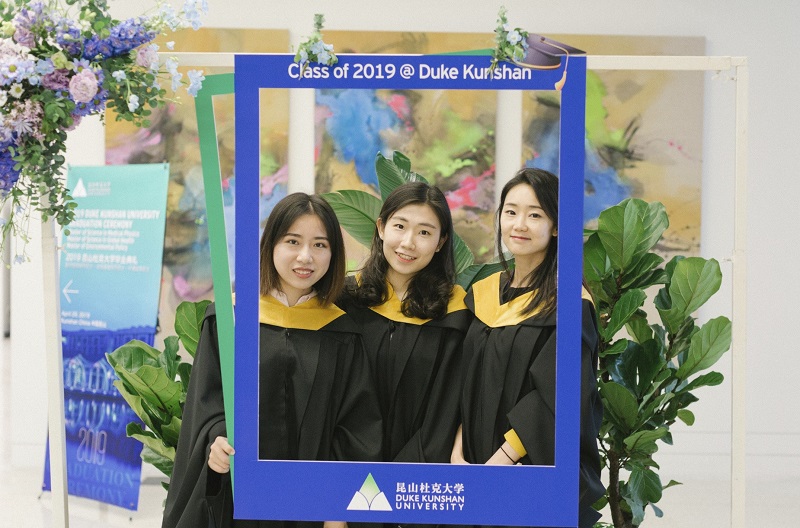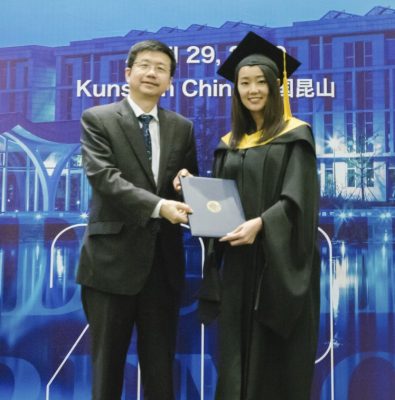23 May 2019

Xiao Ji, from Shenyang in northeast China, graduated from Duke Kunshan’s master of global health program in the Class of 2019. She explains her motivation for joining the program and what she plans to do next.
Before I came to Duke Kunshan, I was a doctor. I spent eight years studying in medical school in China and then another four practicing as a cardiologist in a tertiary hospital. Now my interest is pursuing work at the intersection of disease prevention and primary health care.
I loved my job as a doctor, but it wasn’t completely fulfilling. I worked very hard and treated more than 1,000 patients in four years, and I noticed that many patients were not aware of disease prevention or management. I asked myself, ‘How many patients can I cure in my whole life?’ My conclusion was that I needed to do more preventive health care rather than just clinical treatment.
That’s why I wanted to change jobs. I wanted to learn more about preventive health care, public health, and health systems and technologies, and the best place to do that was in further education. It was a tough decision. But if you’re confident and follow your heart, you’ll get it. That’s why I went back to school.
My original target was public health programs. I searched online and, by accident, came across the idea of global health. It was a brand-new concept to me. I read all the blogs by alumni and students from Duke Kunshan, and I discovered that the master of science in global health was exactly what I wanted in a program.
What attracted me most was the field research component. It was fascinating. You have the opportunity to research and live locally with other health providers from different cultures and health systems and learn about both successes and failures in health care. That’s really precious. Also, you can spend time in three different countries ‘ it’s awesome.
The courses, the field research experience and the interdisciplinary collaboration were fantastic. I chose the courses on noncommunicable disease in the first semester and learned a lot about how to manage and follow up with chronic disease patients, especially those with diabetes or hypertension, which are highly related to my background. I also learned how to use mobile devices for patient management, which is really interesting and helpful to my career.
We also had courses related to research design practice, and we learned how to design high-quality research projects, including quantitative and quantitative research methods. The statistics and epidemiology courses also helped me dig deeply into how to analyze data precisely and accurately.

I found the field research to be really valuable. I conducted my research with Dr. Ann Marie Navar from the Duke Clinical Research Institute. We conducted an online survey in China and the United States about doctors’ attitudes toward lipid management. It was awesome to work with a professor in the same field in another country. I got to know more about the U.S. health system and why health care providers there have such different attitudes compared with those in China, as well as how different guidelines work for them. I also got to establish very good connections with doctors.
There was also amazing interdisciplinary collaboration on the program. My classmates were all from different backgrounds, such as programming, engineering, biology, internal medicine, health care administration, and medical English. It’s great when people from various backgrounds work on the same project. It’s kind of like the movie ‘Fantastic Four’ ‘ you all have different abilities and use them to solve a problem. I like teamwork, and I liked my team members. I hope this kind of collaboration can create some spark in the future for China’s health care system.
I can now bring all that I have learned and experienced in the program into practice. Even though my main goal has mostly remained the same, it has slightly changed over time. I can see my future more clearly.
My next step will be work at the intersection of health innovation and primary health care. I’m applying to join programs in this field in Asia as well as to health-related technology companies. Now that I have both a clinical background and a global health background, I plan to integrate them.

© 2025 Duke Kunshan University 苏ICP备16021093号